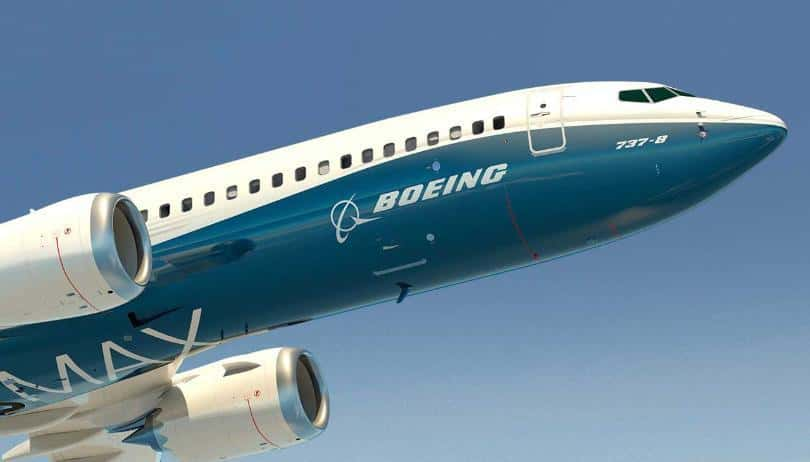Air travel is making a remarkable comeback. The U.S. Transportation Security Administration (TSA) recently broke its record by screening 2.99 million passengers in a single day, and it’s poised to surpass the 3 million mark soon. This summer is predicted to be the busiest ever, with the TSA gearing up to screen 32 million travelers over the July 4th holiday period, marking an increase of more than 5% from last year.
Globally, the skies are just as busy. The International Air Transport Association (IATA) reported an 11% increase in global passenger demand for April 2024 compared to last year, with international demand rising by 15.8% and domestic demand by 4%. This growth is fueled by strong international demand and advances in airport technology, from digitization to contactless travel.
As the northern summer peak travel season kicks off, the airline industry is poised for a robust summer, offering travelers more options and better experiences.
With air travel bouncing back strongly, the question arises: Is The Boeing Company (BA - Get Rating) positioned to capitalize on these trends? The aviation giant recently weathered significant challenges to its reputation due to heightened scrutiny and criticism from safety concerns and incidents this year.
Despite these challenges, Boeing has shown resilience in the market. Over the past month, the stock has gained 2.6%, closing the last trading session at $179.10. However, the airline company has struggled over the past year, with its share price declining by 12.8%.
Now, let’s discuss several other factors that could influence BA’s performance in the upcoming months:
Disappointing Financial Performance
For the quarter that ended March 31, 2023, the company reported a 7.5% year-over-year decline in its total revenues to $16.57 billion. Its non-GAAP core operating loss came in at $388 million and $1.13 per share, respectively. Also, BA’s net loss for the quarter amounted to $355 million, versus the $425 million loss in the prior year’s period.
The airline also reported an operating cash outflow of $3.36 billion, compared with a $318 million cash outflow in the previous year. It posted a negative free cash flow of $3.92 billion, compared with a loss of $787 million a year ago.
Deliveries of BA’s commercial planes declined by 36% year-on-year in the first three months of 2024. Further, the total company backlog grew to $529 billion, including over 5,600 commercial airplanes.
Unfavorable Analyst Expectations
Analysts expect BA’s revenue to decrease 9.2% year-over-year to $17.94 billion for the second quarter ending June 2024. The company is expected to report a loss per share of $1.10 for the ongoing quarter, compared to a $0.82 per share loss reported in the prior year’s period. Moreover, the company’s EPS is expected to remain negative in the current year ending December 31, 2024.
Premium Valuation
In terms of forward P/E, BA is trading at 380.06x, which is significantly higher compared to the industry average of 21.10x. Likewise, the stock’s forward EV/EBIT and EV/EBITDA of 74.60x and 37.58x are 376.5% and 238.4% higher than the respective industry averages of 15.65x and 11.11x. In addition, its forward Price/Cash Flow multiple of 128.57 compares to the industry average of 13.15.
Dimmed Profitability
BA’s trailing-12-month gross profit margin of 11.48% is 63% lower than the industry average of 31.04%. Likewise, its 1.08% trailing-12-month EBIT margin is 89.3% below the industry average of 10.16%. In addition, the stock’s trailing-12-month net income margin and ROTA of negative 2.81% and negative 1.60% compares to the industry averages of 6.08% and 4.91%, respectively.
POWR Ratings Reflect a Weak Outlook
BA’s bleak fundamentals are reflected in its POWR Ratings. The stock has an overall D rating, equating to a Sell in our proprietary rating system. The POWR Ratings are calculated by considering 118 distinct factors, with each factor weighted to an optimal degree.
Our proprietary rating system also evaluates each stock based on eight distinct categories. BA has a D grade for Growth and Sentiment, consistent with its poor financial performance in the last reported quarter and unfavorable analyst estimates.
Likewise, the stock’s D grade for Stability is justified by its five-year monthly beta of 1.55.
In the Air/Defense Services industry, BA is ranked #54 out of the 71 stocks.
Beyond what we’ve stated above, we have also rated the stock for Value, Momentum, and Quality. Get all ratings of BA here.
Bottom Line
Airlines are poised to surpass pre-COVID levels with robust revenue growth fueled by pent-up travel demand and a promising summer market outlook. However, the company faces formidable challenges following a series of setbacks this year, eroding confidence in its operations.
Recent events have put BA’s ability to deliver under intense scrutiny. With increasing order cancellations and dwindling cash reserves, which ranged between $4 billion and $4.5 billion for the first quarter, the aircraft manufacturer finds itself in a critical financial position.
Considering BA’s grim outlook, weak financials, and declining profitability, the upcoming term will be crucial for the company’s long-term survival. As Wall Street weighs these factors, the question of Boeing’s investment appeal looms large. Hence, it could be wise to avoid investing in BA now.
Stocks to Consider Instead of The Boeing Company (BA)
Given its uncertain near-term prospects, the odds of BA outperforming in the weeks and months ahead are compromised. However, there are many industry peers with much more impressive POWR Ratings. So, consider these three A-rated (Strong Buy) stocks from the Air/Defense Services industry instead: Willis Lease Finance Corporation (WLFC - Get Rating), Lockheed Martin Corporation (LMT - Get Rating), and Elbit Systems Ltd. (ESLT - Get Rating).
To explore more A-rated Air/Defense Services stocks, click here.
What To Do Next?
Discover 10 widely held stocks that our proprietary model shows have tremendous downside potential. Please make sure none of these “death trap” stocks are lurking in your portfolio:
Want More Great Investing Ideas?
BA shares were trading at $175.51 per share on Tuesday afternoon, down $3.59 (-2.00%). Year-to-date, BA has declined -32.67%, versus a 14.93% rise in the benchmark S&P 500 index during the same period.
About the Author: Shweta Kumari

Shweta's profound interest in financial research and quantitative analysis led her to pursue a career as an investment analyst. She uses her knowledge to help retail investors make educated investment decisions. More...
More Resources for the Stocks in this Article
| Ticker | POWR Rating | Industry Rank | Rank in Industry |
| BA | Get Rating | Get Rating | Get Rating |
| WLFC | Get Rating | Get Rating | Get Rating |
| LMT | Get Rating | Get Rating | Get Rating |
| ESLT | Get Rating | Get Rating | Get Rating |





